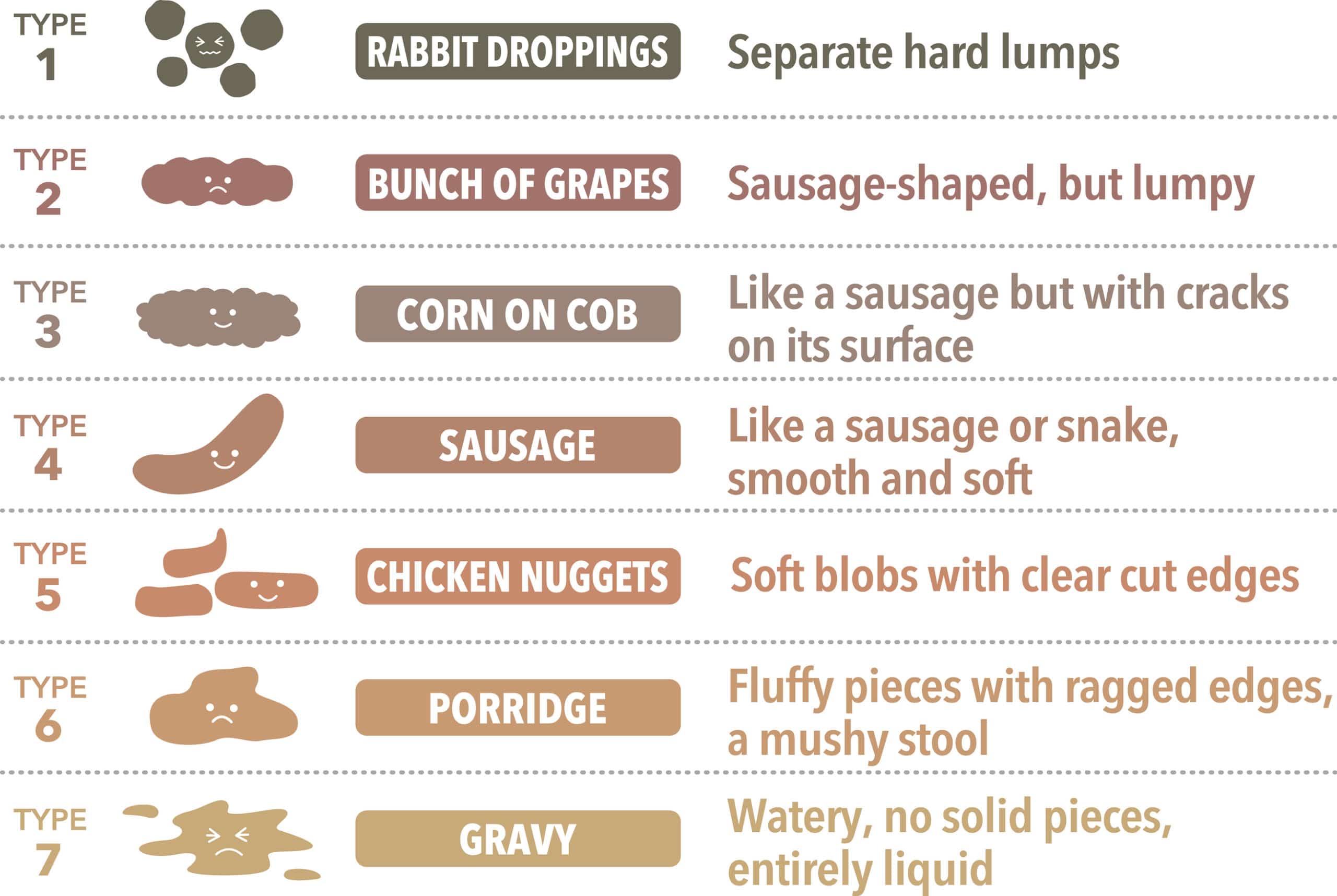Why do I poop in the morning?
Why do I poop in the morning?
(Find out why you poop in the morning and more with the Poo Doctor!)
Click Here For Transcript of "Why do I poop in the morning" Video
Coffee? Check.
A good stretch? Check.
The Perfect poop? Checkmate.
I don’t know if you’ve noticed this, but doesn’t it seem like people poop the most in the morning?
I certainly do. I wondered why that was and did some research.
Part of the reason is your colon.
When you wake up, it snaps into action after its long slumber.
That can help most people keep a positive poop appointment, which can also be nice because a perfect morning poop that frees you up from any poop related pain for the rest of the day is great!
No painful single ply public bathroom toilet paper for this poo!
But if you’re not completely, gently, and enjoyably emptying your bowels every morning then keeping some sort of consistency in the time and shape and well… consistency is important.
And it’s easier to attain than you think.
Click below to hear about a startling new nutrient discovery that’ll get you on schedule for the perfect poop.
I can’t begin to tell you what a difference it’s made in my life.
Click below and we’ll talk next time. Until then, like for good poop, share for great poop.
See ya!
Why do I poop in the morning? How many times should I poop each day? What is a normal bowel movement? These are some of the questions you may have asked yourself or Google but never discussed with friends or even your doctor. That’s because most people are embarrassed to talk about poop issues. Consequently, the details of their bowel movements are kept secret. But it’s important to talk about your bathroom habits. After all, the appearance and frequency of your bowel movements can indicate whether you have a gastrointestinal disorder. Changes in your stool and bathroom routine can also reveal digestive problems, infections, disease, and even cancer. So…let’s answer some of the most common questions about poop, pooping, and bathroom habits. Ever wondered why your body seems to have its own alarm clock for bowel movements, often promptly scheduled for the morning? This intriguing morning routine is more than just a coincidence; it’s a complex interplay of biology and lifestyle habits. Understanding this can shed light on how deeply interconnected our body’s natural rhythms are with our daily activities. For many, the morning call to visit the bathroom is as regular as the sunrise, but the reasons behind this timing are layered and multifaceted. From the moment you wake up, your body kicks into a higher gear—metabolism stirs, hormones adjust, and the brain signals various parts of the body to start the day’s processes. This includes the digestive system, which has been quietly working overnight to process the previous day’s meals. The discussion here invites you to explore the intelligent and subtle ways our bodies prepare us to refresh and reset every morning. Whether part of a health routine or a simple biological function, this morning occurrence is a fascinating glimpse into the body’s efficient functioning. Interested in uncovering more about this topic? This is just the beginning of a journey into understanding the clever workings of our bodies, right from the first hour of our day. Feel enlightened by this snippet of digestive wisdom? Share it with friends and family on social media or forward it in an email. It’s a conversation starter that might change how they think about their morning routines! A morning poop routine is typical for many people. This natural schedule is not just a coincidence but a result of several physiological processes activated by our body’s internal clock. Here are a few reasons why this daily event tends to happen right after we wake up: As we sleep, our body’s endocrine system is still busy, releasing hormones that regulate energy and metabolism. In the morning, levels of cortisol rise, which not only helps wake us up but also stimulates the colon. This hormone surge signals the digestive tract to start moving, often leading to the urge to defecate shortly after waking. For individuals managing weight loss, hormones like cortisol may also play a role in appetite regulation and digestion. In some cases, healthcare providers may consider weight loss drugs for compatible individuals to support metabolic health alongside natural hormonal patterns. The gastrocolic reflex is one of the most significant triggers for morning bowel movements. This reflex is your body’s natural response to food entering the stomach. Even before you eat breakfast, the simple act of waking up and moving can activate this reflex, prompting the colon to clear out what’s left from yesterday to make room for the day’s meals. While the gastrocolic reflex is a natural bodily response, individuals with conditions such as obesity or metabolic syndrome may experience altered digestive patterns. Weight loss drugs may be recommended for certain individuals to enhance metabolic regulation and improve overall gut function. Overnight, the body is largely inactive, which means the processes that push contents through the intestines slow down a bit. Upon waking and starting to move around, physical activity naturally increases. Walking and stretching help stimulate the muscles in the abdomen, supporting the movements of the digestive tract to process and move waste to the rectum. The human body thrives on routine. For those who wake up at the same time each day, the body becomes conditioned to kickstart certain functions, like digestion, at specific times. This conditioning can train the digestive system to initiate movements regularly, aligning with when you typically start your day. Within the first hour after waking, the colon begins a series of contractions known as the morning motor complex. These movements are part of your body’s natural wake-up routine, efficiently designed to clear out the colon and make room for what will be consumed during the day. This process is typically more active in the morning due to the aforementioned rise in cortisol levels and increased parasympathetic activity during sleep, which helps regulate the body’s unconscious actions like digestion. As a result, these contractions often prompt a bowel movement, completing the body’s preparation to receive and digest a new intake of food efficiently. Each factor plays a role in why many people head to the bathroom as part of their morning ritual. Understanding these can help you better manage your morning and ensure you’re giving your body what it needs to start the day right. For many, the morning cup of coffee is a ritual that kicks off the day—not just by waking up the mind but often by stimulating the bowels as well. Coffee has a curious and common effect on the digestive system, and understanding why this happens can be quite enlightening. Here’s an exploration of why your daily brew can have such a timely impact. Coffee, particularly when consumed first thing in the morning, acts as a powerful stimulant not only for the brain but also for the digestive tract. The presence of caffeine in coffee triggers a series of responses in the stomach and the small intestine that contribute to its laxative effects. Caffeine increases the production of stomach acid, which helps break down food more efficiently. More importantly, it stimulates the muscles in the digestive tract, which accelerates the digestive process and pushes contents toward the colon more quickly than usual. Additionally, coffee contains certain compounds, such as chlorogenic acids and N-alkanoyl-5-hydroxytryptamides, which enhance stomach acid production and the colon’s activity. These compounds prompt the release of gastrin, a hormone that speeds up colon activity, and cholecystokinin, which stimulates bowel movements by relaxing the colon muscles and making stools easier to pass. Thus, for many, drinking coffee results in a prompt visit to the bathroom soon after. Understanding this digestive dance can help you manage your coffee intake to align with your daily schedule, ensuring your morning ritual supports your body’s natural rhythms in a timely manner. How often should you have a bowel movement, and what are the signs that indicate a healthy poop and digestive system? These are common questions concerning personal health, and the answers can vary widely from person to person. The frequency of bowel movements is highly individualized, typically ranging from three times a day to three times a week. Being regular differs for everyone and doesn’t necessarily mean having a daily bowel movement. What’s important is the consistency in your pattern. A sudden increase or decrease in frequency, especially if accompanied by discomfort or changes in stool appearance, may indicate a need to consult a healthcare provider. Sudden changes in bowel habits, especially when tied to weight-related health concerns, may prompt discussions with a healthcare provider about appropriate interventions. Weight loss drugs could be considered for certain individuals as part of a broader plan to support digestive health and metabolic stability. A healthy bowel movement generally has certain characteristics that can help reassure you that your digestive system is functioning correctly. The stool should be soft and pass easily without pain or excessive straining. It should be brown in color due to the bile produced in the liver and maintain a relatively consistent texture. Floating stools are typically not a concern unless accompanied by an unpleasant odor and an oily appearance, which could indicate excess fat due to malabsorption. Staying observant of these signs in your daily routine can help maintain not just digestive health but overall well-being. Regular, comfortable bowel movements are a sign of good health and dietary habits, so keeping track of your body’s patterns is beneficial. If you notice any persistent changes in your bowel movements or experience discomfort during digestion, discussing these changes with a healthcare professional may be wise. Experiencing frequent bowel movements can be a sign that the body is responding to a variety of conditions, from dietary changes to underlying health issues. Understanding the reasons behind this increase can help identify potential health concerns and guide appropriate actions to manage or mitigate symptoms. Here are several causes of excessive bowel movements, each linked to different triggers or health conditions. Increasing the consumption of fiber-rich foods, such as fruits, vegetables, and whole grains, can lead to more frequent bowel movements. While fiber is beneficial for digestive health, a sudden increase can cause the body to adjust, resulting in more trips to the bathroom. Monitoring and gradually adjusting fiber intake can help manage this effect. IBS is a common disorder affecting the large intestine and can cause a variety of symptoms, including an increased frequency of bowel movements. People with IBS may experience periods of diarrhea followed by constipation, often accompanied by abdominal pain. Managing IBS typically involves dietary changes, stress management, and, in some cases, medication. Bacterial or viral infections, such as those caused by foodborne pathogens, can lead to gastrointestinal distress and frequent bowel movements. Symptoms often include diarrhea, cramping, and nausea. These infections usually resolve on their own, but severe cases may require medical treatment to prevent dehydration and address symptoms. Conditions such as Crohn’s disease and ulcerative colitis fall under the umbrella of IBD and lead to chronic inflammation of the digestive tract. This inflammation can cause increased bowel movements, often with pain and bleeding. Treatment for IBD may include medication to reduce inflammation and, in some cases, surgery. An overactive thyroid gland can accelerate the body’s metabolism, leading to rapid digestion and increased bowel movements. Other symptoms of hyperthyroidism include weight loss, rapid heartbeat, and anxiety. Managing hyperthyroidism typically involves medication to regulate thyroid function. Difficulty digesting lactose, the sugar found in milk and dairy products, can result in frequent bowel movements, particularly after consuming these foods. Symptoms include diarrhea, gas, and bloating. Avoiding lactose or using lactase supplements can help manage this condition. Occasional morning diarrhea can be a sign of lactose intolerance due to consuming dairy products the night before. Frequent bowel movements are a common issue that may be linked to a variety of causes. If you notice a persistent change in your bowel habits, it is advisable to consult with a healthcare provider to determine the underlying cause and appropriate treatment. Keeping track of dietary intake and symptoms can aid discussions with your healthcare provider and help tailor management strategies. Understanding digestive health is crucial for maintaining overall well-being. Here are some frequently asked questions that cover substantial aspects of digestive function and how to manage and improve gut health. A healthy digestive system typically manifests as regular bowel movements free from pain, discomfort, or irregularity. Stools should be well-formed, consistent in texture, and passed without strain or excessive urgency. Not experiencing frequent heartburn, bloating, or gas can also indicate that the digestive system is functioning well. Diet plays a pivotal role in maintaining digestive health. A balanced diet rich in fiber from fruits and vegetables supports healthy digestion, promotes regular bowel movements, and prevents constipation. On the other hand, diets high in processed foods and low in fiber can lead to various digestive issues, including constipation and an increased risk of digestive disorders. Drinking plenty of water and limiting the intake of high-fat and high-sugar foods are also important dietary considerations for optimal digestive health. Stress can significantly affect the digestive system. It can alter digestion and impact the absorption of nutrients, leading to symptoms such as indigestion, stomach cramps, diarrhea, or constipation. Managing stress through regular exercise, adequate sleep, mindfulness practices, and professional support can help mitigate these effects and promote healthier digestive function. The gut microbiota is vital for digestive health. It helps digest certain foods that the stomach and small intestine have been unable to digest, aids with the production of some vitamins (B and K), and plays a crucial role in the immune system. An imbalance in these gut bacteria can lead to numerous health issues, including inflammatory bowel diseases, obesity, and chronic diarrhea. Consuming probiotics and prebiotics can help maintain a healthy gut microbiota balance. Consulting a healthcare provider is recommended if you experience persistent symptoms that disrupt your daily life, such as recurring diarrhea, constipation, nausea, or severe pain in the abdomen. Additionally, unexplained weight loss, blood in the stool, or jaundice (yellowing of the skin and eyes) are signs that should prompt immediate medical attention. These symptoms could indicate severe underlying conditions that require professional assessment and treatment. Maintaining digestive health involves a combination of dietary habits, stress management, and understanding the body’s signs and signals. Regular check-ups can also help catch any issues before they become serious, ensuring the digestive system remains healthy and functional. Exploring why we often head to the bathroom first thing in the morning reveals much about our body’s complex and fascinating biological rhythms. Whether it’s the surge of morning hormones, the body’s physical movements, or the power of routine, each plays a part in this daily ritual. If you found these insights intriguing, why not share them? Spark a conversation with friends and family by passing along this article through social media or email. It’s a lighthearted way to start the day, offering both a chuckle and a slice of science everyone can relate to. Help fix so many of your digestive and bathroom issues, such as gas and bloating, and improve your overall health with this patented molecule that is backed by Ivy League Doctors by clicking here!Understanding Morning Regularity: Why Do We Poop First Thing in the Morning?
1. The Morning Rush of Hormones
2. The Gastrocolic Reflex
3. Increased Movement
4. The Power of Routine
5. Morning Colon Contractions
Why Does Coffee Send Us to the Bathroom?
Understanding Bowel Movement Frequency and Signs of Health
Reasons for Excessive Bowel Movements
1. Dietary Choices
2. Irritable Bowel Syndrome (IBS)
3. Infections
4. Inflammatory Bowel Disease (IBD)
5. Hyperthyroidism
6. Lactose Intolerance
FAQ: Key Questions About Digestive Health
1. What are the signs of a healthy digestive system?
2. How can diet influence digestive health?
3. What is the impact of stress on the digestive system?
4. How important is gut microbiota for digestive health?
5. When should you see a doctor about digestive issues?
Conclusion: Morning Mysteries Unveiled
Fix your poop issues today!
Types of poop one encounters is categorized by the Bristol Stool Chart. This chart is a generalized indicator of how or why different types of poops look and feel a certain way. The 7 types of poop are broken up into categories based on a 2,000-person study!

Does your poo look this good? If you have Bristol Type 3 or 4 – your poop is considered “normal”! Bristol Type 1 or 2, is where the poop is hard and difficult to pass, are indicative of constipation. Often, these types of stool can be painful to pass – but don’t worry – Doctor Poo has a recommended healthy-gut switch solution…just keep reading!
Should you ever worry about your poop?
Always consult your healthcare provider if you have any concerns about what your poop means. People are asked to call their health care providers if: They experience severe levels of abdominal pain or discomfort with diarrhea that does not go away when you poop or fart. Also, if diarrhea is accompanied by fever of 101 degrees Fahrenheit or higher, chills, vomiting, or fainting, call your physician immediately.
What is an unhealthy poop?
An unhealthy poop is when one poops too often (hence, your doctor asking you if you poop more than three times daily) or not pooping often enough (As such, less than three times a week) and also excessive straining when pooping. Poop that is colored red, black, green, yellow, or white. greasy, or fatty stools is unhealthy.
Help fix so many of your digestive and bathroom issues, such as gas and bloating and improve your overall health with this patented molecule that is backed by Harvard Doctor’s by clicking here!
Doctor Poo Provides More Valuable Answers for Those Hard to Ask Questions Below:













Trackbacks & Pingbacks
[…] https://sanesolution.com/poo-doctors/why-do-i-poop-in-the-morning/ […]
Comments are closed.